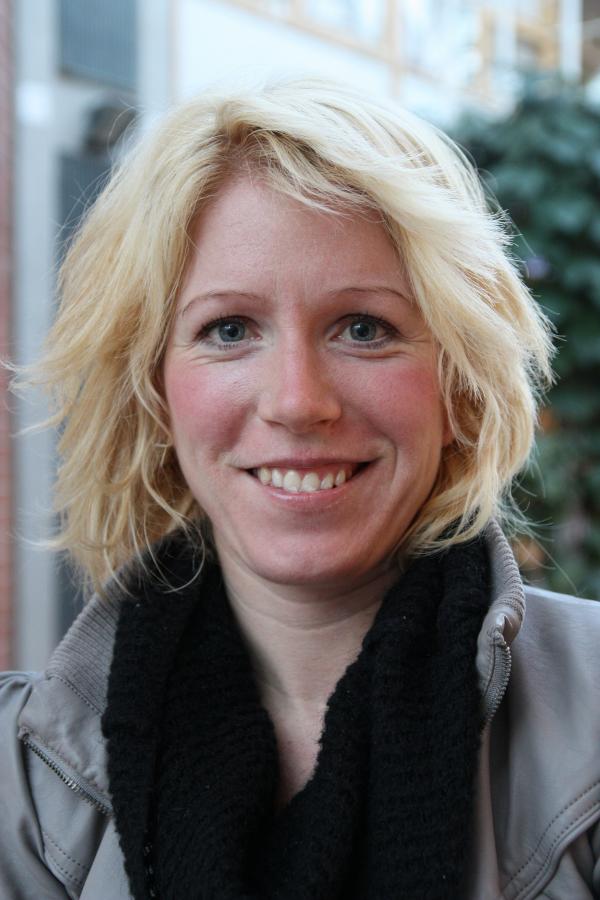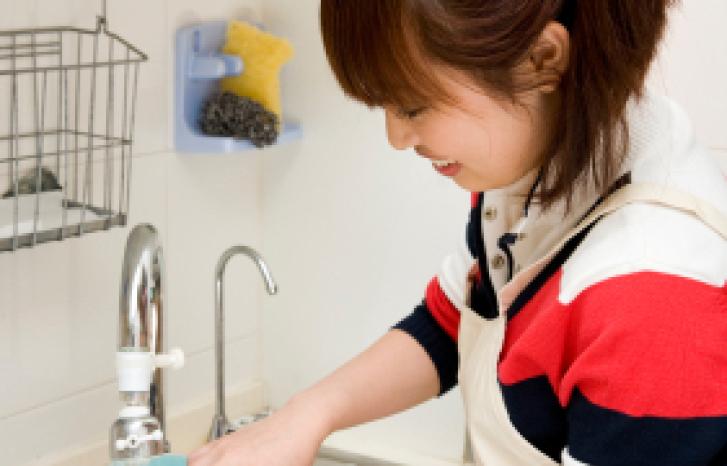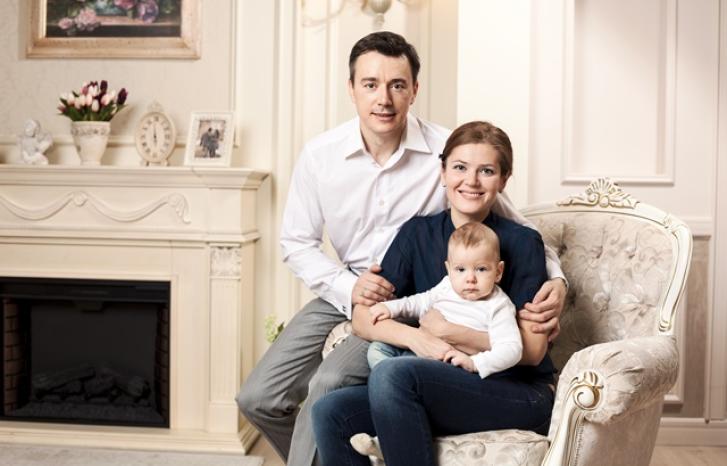“I think that many families with two incomes need help. […] The way I see it, it is just a positive thing if you’re able to help someone from a developing country as well. For her it’s not just a job, it’s something that provides financial security for both her and her family, which is important. So instead of having someone from Sweden do the same job, […] And the families I know of treat their au pairs well.”
This is what “Emma” says when she is asked to reflect upon the paradox that Norwegian families use au pairs and domestic workers from poor countries in order to overcome the time squeeze and secure equality in their relationships.
According to “Emma” and her husband, the au pair scheme is also a sort of development aid, an opportunity for Norwegian middle class parents to help women in poor countries to a better future.
More and more Norwegian families pay for domestic labour, either an au pair or a housekeeper. What does this tell us about Norwegian society today?
A solution to the time squeeze
Guro Korsnes Kristensen has studied Norwegian women and men who have chosen private assistance in the home. “Emma” is one of them.
Although these families lived relatively different lives in different parts of the country, the researcher discovered that their reasons for having in-home assistance were surprisingly similar.
“For many people it has to do with the notorious time squeeze. They were desperate for help in order to make everything fall into place with work and family life,” says Korsnes Kristensen.
“They regard the au pairs as employees and hard-working heroes, not as exchange students from a foreign culture.”
“Because we’re worth it”
Other families stated that in principle, they could have managed without any assistance, but they wanted the help and they could afford it.
“It is so nice to come home to a clean house. And there are so many other things we would like to spend our time on such as working out and quality time with the children, so why not?”, said one of the couples.
Answers like this one were particularly common among those who had a housekeeper. A housekeeper who cleans houses normally works only two to three hours a week, whereas an au pair works up to thirty hours every week.
Many of the interviewees said that the au pair was a positive addition to their family life. The fact that the au pair took care of the majority of the housework reduced the everyday stress, and they had more surplus energy to spend on themselves and the children.
Some also said that their house was well suited for having an au pair.
Not just the upper class
Korsnes Kristensen has interviewed thirty-nine Norwegian women and men who either have or are planning to have in-home assistance. Half of them had an au pair and the other half had a housekeeper. They were all parents of two to five small children; most of them had three children.
“Some of the families were of course very wealthy whereas others were single mums with a low incomes. Some had children with special needs,” she says.

Some of the parents had executive positions and long working days while others had positions with more average working hours. All the interviewed families who had a housekeeper belonged to the middle class. So did half of the families who had an au pair. The other half of the families who had au pairs belonged to the upper class.
Good people
The host families talked about how important it is to be good to the au pair. Some families paid extra money, while others brought their au pair along on holidays or bought presents for them. Other families said they let their au pair invite friends around to their house for parties.
“In this way, having an au pair becomes compatible with the Norwegian ideal of parity and equality,” says Korsnes Kristensen.
“Another consequence of these actions is that the host families appear to be very good people.”
None of the interviewed families had an au pair for the sake of cultural exchange, although this is the official purpose of the au pair scheme. But according to the researcher, this does not mean that cultural exchange between the au pairs and the host families doesn’t take place.
For instance, the host families were eager to tell her that they brought their au pairs along on typical “Norwegian” activities such as fishing, skiing and hiking. They also emphasised that they gave the au pairs the opportunity to learn about democracy and equality in Norway.
Unhappy au pairs
At the same time, the families did not try to hide the fact that having someone living with them also presented some challenges. One common challenge was that the au pair seemed unhappy.
“In most cases the host families believed this had to do with the au pair’s personality or her own family situation rather than with her relationship to the host family or with the actual au pair scheme itself,” says Korsnes Kristensen.
Not entirely acceptable
More and more Norwegian families buy themselves out of housework responsibilities such as cleaning, cooking, and childcare. However, there are less au pairs and housekeepers in Norwegian homes than in many other European countries.
“The Norwegian welfare state is efficient and well developed, with kindergarten coverage and generous parental leave schemes. Due to these factors, as well as the Norwegian idea of equality, paying for private in-home services requires more explanation and justification than in other countries,” says Korsnes Kristensen.
The au pair scheme is often criticised in public debates. KILDEN has previously written about researchers who claim that au pairs are underpaid housemaids with an hourly salary as low as 69 Norwegian kroner.
“Costs no more than a used car”
Several of the host families had experienced negative reactions and little understanding from people around them.
“Arne”, a married father of three, admitted that he didn’t like discussing the au pair when he was back visiting the village where he grew up:
“It’s not that I’m ashamed. I don’t know … it’s just that … many people think you have to be extremely rich to have an au pair. But in reality it costs no more than an old, rusty car. It costs less. I’m convinced that some people spend more money playing the lottery than we spend on an au pair.”
Another type of servants
“Børge” claims that those who criticise host families for contributing to social dumping have no idea what they’re talking about:
“To us it’s all about getting help. This is what it used to be like in Norway 150 years ago. People in the cities employed girls from rural areas who lived with them and worked in the house. And then some people say this is social dumping. We think that those who say that are people who have no experience with au pairs on their own.”
Korsnes Kristensen, on the other hand, claims that there is an important difference between au pairs and the servants from the Norwegian countryside 150 years ago:
“Today the servants come from the other side of the world, and unlike the Norwegian girls from the countryside, they often have a family to support in their home country.”
Sees few problems with the scheme
The host families saw few problems with the au pair scheme itself.
“Arne” thought the scheme was reasonable as long as everything happened in accordance with the contract. To him, the major problem was the host families who require the au pair to work much more than the thirty weekly hours regulated by contract.
Others, such as “Sigurd”, a father of five, admitted that their au pair worked more than the maximum contractual limit. He nevertheless thought it was unproblematic:
“We pay her for the work she does. We even pay her more than we have to, because we want to. Because we like her and think she is doing a good job, and because we want her to be happy here. We give her presents as well. So I regard this as a win-win situation.”
“Sigurd” and his wife were aware that they were breaking the contract, but according to them this was beneficial for the au pair, as it was in her interest to make more money.
A fair arrangement?
An au pair in Norway has the right to a monthly allowance of at least 5400 Norwegian kroner before tax deduction. Board and lodging is free. According to Statistics Norway, the average monthly salary for a Norwegian employee in 2013 was 38 500 Norwegian kroner before tax deduction.
Nevertheless, “Børge” thinks the arrangement is fair:
“When you think about it; she works thirty hours a week, I work fifty-two hours. And she has no other expenses. So it’s not such a bad deal after all. And she has a lot of spare time where she can do whatever she likes.”
“There’s an inequality between the host family and the au pair, but the host families don’t necessarily treat the au pairs badly,” claims Korsnes Kristensen.
Translated by: Cathinka Dahl Hambro



